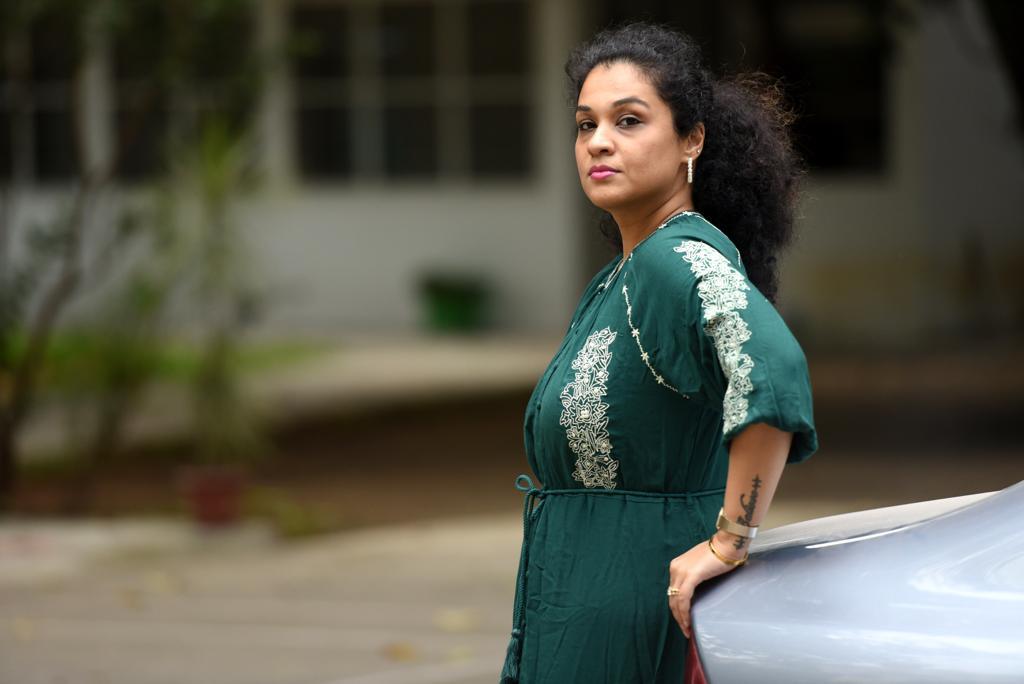When I was a little girl, despite my humble beginnings, I had big dreams. Seeing my father build a business from scratch taught me the value of an honest day’s work, which I had promised myself I would grow up to do the same.
I wanted to create an identity for myself and followed my passion for fashion design. I tasted success which was overwhelming at that point. But, I dared to dream bigger; I wanted to give it back to society.
Why?
During my son’s 6th birthday, we visited a school for service where a girl refused the donated food and instead asked for sanitary pads. On probing further as to what they were currently using, I came to know that some of them use leaves that are stitched together, cloth, or other makeshift things.
I was appalled!
That incident stuck with me, which was when I decided to research sanitary pads.
The heat of the problem of lack of menstrual hygiene has long been in dialogues and many initiatives taken, but it is never enough.
I was fortunate to have had the opportunity and resources at hand to go after my calling to promote menstrual hygiene and dispel the period stigma that is plaguing India - because no woman must battle the shame of period stains!
What’s the problem?
In India, there exists an overpowering silence around menstruation, cloaked in shame due to a lack of awareness. I felt it was high time, women were liberated from unwanted shackles and the taboos around menstruation were broken.
Problems arise regarding feminine health and hygiene and increase daily which encompass women lacking access to proper knowledge; the toxic and expensive sanitary pads in the market and dysfunctional toilets or lack of any.
Most people tolerate rashes and irritation accepting it is part of menstruation, totally unaware it’s the doing of the toxic chemical pads.
The revelation I made during research was shocking. I discovered that pads are not organic and it’s a marketing gimmick. Not just that, there are a lot of other points including the ill effects of chemicals in sanitary pads on women's health, which disturbed my harmony.
I envisage ensuring proper menstrual hygiene in India through indigenous strategies based on three principles: Awareness, accessibility, and affordability.
By thinking big and starting small, I focused my time, energy, and resources on consummating Honestpad, the tool to serve my mission.
Awareness:
Given the lack of conversation about periods, many adolescent girls in India are unaware of menstruation until they get their first period themselves. To emphasize awareness, we at Honestpad conducted various campaigns disseminating knowledge about menstruation. I do not want another girl to use leaves unknowing the consequences and elucidate the importance of choosing the right sanitary pads.
I decided to take a step further to revolutionize ‘Green Menstruation’, through these awareness campaigns. I revel at how the campaigns educate about chemical-free pads and disposal methods, aiming to make sustainable menstruation mainstream.
And beyond raising awareness about proper waste disposal, we also assisted in the implementation of appropriate tools at critical points by installing menstrual disposal incinerator machines at local public and governmental facilities. This way, we help in making the environment a better place for future generations.
Accessibility:
Awareness is good, but availability is better!
Since no mountain can be moved alone, I started an umbrella initiative - Project Shakthi, where I created an allied force of women who become micro-entrepreneurs partaking in menstrual awareness campaigns and making honest pads accessible to all.
Project Shakthi is now in motion and our Shakthi ma’s are taking Honestpads into every home as we speak.

Affordability:
There is a huge part of the population that couldn’t afford sanitary pads, let alone chemical-free ones. In fact, millions of Indian girls drop out of school once they hit puberty, unable to afford sanitary pads.
It is not fair that a part of society is deprived of proper healthcare and their menstrual hygiene practices are below sub-standards when it is in fact a basic need. That was the moment I decided to research sanitary pads.
This urged me to make Honestpads pocket friendly so that I could be the reason few girls continue their education. This was my attempt to eradicate ‘Period poverty’.
Conclusion:
As a woman, daughter, sister, and very importantly, a mother, I want to help other girls and women in terms of providing affordable and hygienic sanitary napkins. That is what I am striving for with Honestpads.
I know I cannot change the world myself, but I sure can create ripples that could touch the lives of many, one step at a time.

